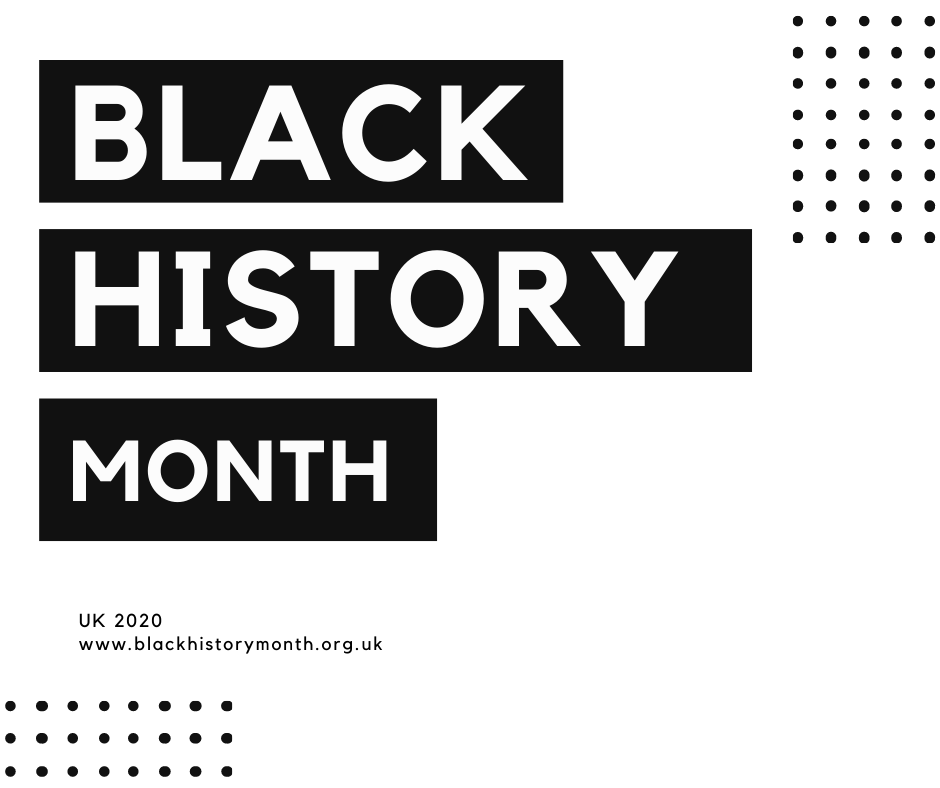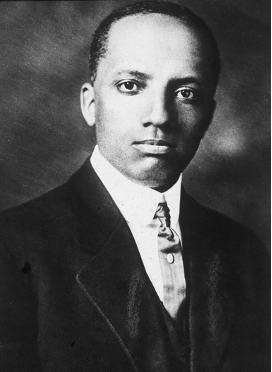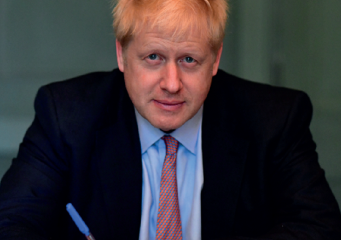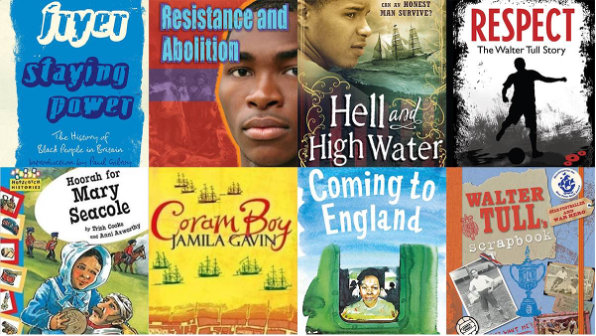
October marks the month that the UK celebrates Black History (it is celebrated in the US in February). This year comes with the recent, cross Atlantic Black Lives Matter movement and Black Lives Matter protests in the US, UK and other parts of the world. "In years gone by, October has been the only time of year when the UK talks about the achievements of Black people in Britain," says Catherine Ross guest editor of Black History Month 2020. "but the Black Lives Matter protests around the world sparked a commitment among many individuals and organisations to educate themselves about Black history, heritage and culture - as part of understanding racism and standing in solidarity against it.” At Affinity we support these sentiments of education, understanding, solidarity and support, as well as celebrating Black History Month. Therefore, we have put together content to support these aims, which will be emailed out weekly over this month, beginning with some important historical information on, and people in Black History.

Wk 1 – Introduction to Black History Month and important historical and current figures in Black History.
Wk 2 - Educational resources for young people around Black History and Black Lives Matter.
Wk 3 - Interaction and practical tools for foster carers to use with their young people.
Wk 4 – E-learning training on Black Lives Matter Fostering in the UK.
In this week’s edition, you will find the following-
I hope you enjoy this first instalment and we look forward to providing some more content next week.
Who started Black History Month?
In the US, Black History Month was created by historian Carter G. Woodson (1875-1950). He wanted to challenge preconceptions at the time that 'the negro has no history' and founded The Association for the Study of Negro Life and History in 1915 which encouraged scholars and historians to research and preserve black history and culture.

In February 1926, Woodson founded Negro History Week.
It was later decided that a week wasn't long enough and, against the backdrop of the civil rights movement and the Black Power Movement, Black History Month was born in 1969.
Like most things that originate in the US, it wasn't long before word about Black History Month made its way to the UK.
After visiting America in the 1970s, Ghanaian-born Akyaaba Addai Sebo, a special projects officer at the Greater London Council, founded the UK's version of Black History Month in 1987.
The US celebrates in February because the birthdays of former US President Abraham Lincoln and abolitionist Frederick Douglass fall within this month.
There are two reasons thought to be behind why Black History Month is celebrated in October in the UK.
Traditionally, October is when African chiefs and leaders gather to settle their differences, so Akyaaba chose this month to reconnect with African roots.
Additionally, many thought that since it was the beginning of the new academic year, October would give black children a sense of pride and identity.
Black History Month means different things to everyone and pride for this month is expressed in a variety of different ways.
For many, Black History Month is a way of reflecting on the diverse histories of those from African and Caribbean descent, taking note of the achievements and contributions to the social, political, economic and cultural development of the UK.
Black History Month is not without its opponents, though. Some people argue that it's hardly justified to teach black history in the space of one month and advocate trying to integrate it into the mainstream education system instead.

For countless generations people of African and Caribbean descent have been shaping our nation’s story, making a huge difference to our national and cultural life and helping to make Britain a better place to be.
It is this contribution of black British people that I am proud to be celebrating Black History Month this October.
That contribution is overwhelmingly apparent today in the energy, talent and dedication of business leaders, lawyers, academics, musicians, artists and many more. This year we have seen the heroic efforts of all the frontline workers and the doctors, nurses and medical professionals who have been tirelessly supporting our NHS throughout the coronavirus pandemic.
Of course, there is much more work to be done to ensure that every person of every skin colour, background and creed has the opportunity to succeed, and to stamp out discrimination and racism. I understand the force and depth of feeling that has been expressed following the death of George Floyd in the United States, and share the determination of all those seeking a more equal and just world. That’s why I have set up a Commission on Race and Ethnic Disparities to make the progress so many have called for, and to bring about lasting change.
But I also believe that alongside tackling the substance of the problem, we should be giving due praise and recognition to all those who have played such an important role in helping to positively shape modern Britain and our modern Commonwealth.
Because it’s a great shame that more people do not know more about Paul Stephenson or Mary Prince. Or that they haven’t heard about the many brave black servicemen who served in the World Wars – from those grappling in the mud of the Western Front, to the valiant Caribbean pilots and aircrew in the Second World War, and the heroes who fought further afield, in places such as Burma. Or even that they know so little about the Windrush generation, from the nurses who were there at the very start of our NHS to all those who helped rebuild our country after the war.
A key part of the Commission’s work will be to look at how we ensure society is more aware of the significant role people from different ethnic backgrounds have played in our shared British history. Let’s use this Black History Month to celebrate not just the achievements of people today, but of all those who have shaped our nation. Let’s raise up those names. Let’s remember their acts. And let’s celebrate them – because black British history is all our history.”
Boris Johnson, Prime Minister
----------
As promised last week, week 2’s content is about educational resources for young people, to support Black History Month. The BBC have some great interactive content designed for all age groups and several other well-respected channels and programmes have created new and engaging content aimed at varying age groups. There are also a wide selection of child friendly books that may be of interest. Next week we will be providing some interactive and practical tools for foster carers to use with their young people.
Online Interactive content from the BBC
The BBC have some brilliant classroom resources on black history, culture, heritage and achievements brought together by and from the BBC for school ages from KS1 to GCSE. Designed for teaching but equally useful for children to explore themselves, these resources feature Dr Martin Luther King, Rosa Parks, Mary Seacole, Nelson Mandela and Harriet Tubman, and topics from Migration to Freedom Fighting to Civil Rights. These include classroom resources from BBC Teach, and content from around the BBC.
https://www.bbc.co.uk/newsround/49883230?collection=black-history-month
BBC’s Newsround also has a dedicated space for Black History Month for young people to explore. From “Black History Month 2020: What Is it?” to important figures in Black History who paved the way, to “Why Black History is Important”, and children’s experiences of racism.
Child-Friendly Books

For UK Specific children’s books, author Catherine Johnson recommends 8 books around UK history, from rip-roaring smuggling adventures in Devon in “Hell and High Water” by Tanya Landman, to a children’s book all about Mary Seacole (who we wrote briefly about last week) in “Hoorah for Mary Seacole” by Trish Cooke, to a prize-winning novel “Coram Boy” by Jamila Gavin- for readers over 12, one of the main characters is the son of a slave in mid-18th-century Britain.
One must read, celebrating the Windrush generation (a starting point for further information on the Windrush Generation and recent problems can be seen on the bbc - https://www.bbc.co.uk/news/uk-43782241) is by former actress and tv presenter (and author and business woman) Baroness Floella Benjamin, who is now a member of the House of Lords. One of her books, “Coming to England” is the warm and very moving autobiographical story of her journey from Trinidad to England in the 1960s, which she did with her family when she was just 10 years old. Floella's family were part of a whole generation of Caribbean’s who were encouraged to move to Britain to help rebuild the country after the Second World War, but they faced discrimination and racism when they arrived.

This American site has 10 children’s books that help children learn about black culture and history, with books that celebrate key African-American figures, including Rosa Parks, Martin Luther King and President Barack Obama
Created by secondary school teacher, head of year and mother, the videos on Kids Black History are designed for Early Years/Foundation Stage and Key Stage One. This would typically be ideal for children between the ages of 2 - 7. They provide a catalogue of videos weekly to teach children positive black history.
 CBeebies – Let’s Talk About Black History
CBeebies – Let’s Talk About Black History
Willow, Taylor and Stella sit down with their dads to talk about their culture for Black History Month. In this film they talk about influential black people in history.
 Oti Mabuse and Horrible Histories celebrate Black History Month
Oti Mabuse and Horrible Histories celebrate Black History Month
Oti Mabuse from the BBC’s “Strictly Come Dancing” fame selects her favourite bits from the BBC’s acclaimed children’s series Horrible Histories, in celebration of Black History Month.
Complete the form below to receive our brochure.